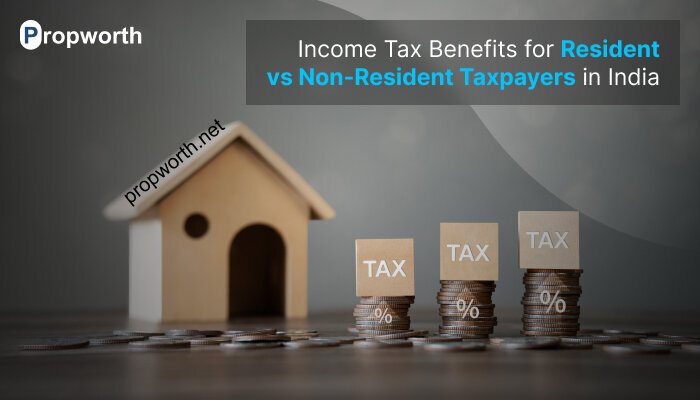If you’re a mutual fund investor, the changes in the Union Budget 2024 related to capital gains tax might have caught your attention. While these changes aim to simplify tax calculations, they also mean you might end up paying more tax on your mutual fund investments. Let’s understand what has changed and how it affects you.
What are Capital Gains?
Before we dive into the changes, let’s quickly understand what capital gains are. When you sell an investment like a mutual fund unit and make a profit, that profit is called a capital gain.
Short-Term vs. Long-Term Capital Gains
There are two types of capital gains:
- Short-Term Capital Gains (STCG): If you sell your mutual fund units before holding them for a year, the profit you make is considered a short-term capital gain.
- Long-Term Capital Gains (LTCG): If you hold your mutual fund units for more than a year and then sell them, the profit is called a long-term capital gain.
How Have Capital Gains Taxes Changed?
The Budget 2024 brought in the following changes:
- Higher Taxes:
- Short-term capital gains tax: The tax rate on short-term capital gains has increased from 15% to 20%.
- Long-term capital gains tax: The tax rate on long-term capital gains has increased from 10% to 12.5%.
- Higher Exemption Limit:
- There’s some good news too! The amount you can earn without paying any capital gains tax has increased from ₹1 lakh to ₹1.25 lakh.
5 Key Provisions Impacting Mutual Fund Investors
The Budget 2024 introduced changes that directly affect how much tax you pay on your mutual fund profits. Here’s a breakdown of the five main changes:
1. Higher Long-Term Capital Gains Tax (LTCG)
- What it means: If you sell your mutual fund units after holding them for more than a year (long-term), the profit you make is now taxed at 12.5% instead of the previous 10%.
- Impact: This means you’ll pay more tax on your long-term gains.
2. Higher Short-Term Capital Gains Tax (STCG)
- What it means: If you sell your mutual fund units before holding them for a year (short-term), the profit you make is now taxed at 20% instead of the previous 15%.
- Impact: This means you’ll pay more tax on your short-term gains.
3. Increased Tax-Free Limit
- What it means: The amount you can earn from selling mutual funds without paying any tax has increased from ₹1 lakh to ₹1.25 lakh.
- Impact: This is a small relief, as you can now earn slightly more before taxes kick in.
4. Different Holding Periods
- What it means: The time you need to hold your investments to qualify for long-term capital gains has changed.
- Listed shares and equity-oriented mutual funds: Hold for more than a year.
- Unlisted financial assets: Hold for at least two years.
- Impact: This affects when you can benefit from the lower long-term tax rate.
5. Changes for Debt Funds
- What it means: The tax on gains from debt mutual funds, bonds, and debentures is now based on how long you hold them, not on when the underlying assets were issued.
- Impact: This could lead to higher taxes in some cases, especially if you hold debt funds for a short period.
In summary, these changes mean you’ll likely pay more tax on your mutual fund profits. It’s essential to consider these changes when making investment decisions and consult with a financial advisor for personalized guidance.
What Should You Do?
- Consult a Financial Advisor: It’s a good idea to talk to a financial advisor to understand how these changes impact your specific situation.
- Review Your Investment Portfolio: Review your investment goals and risk tolerance. Consider if the changes warrant any adjustments to your portfolio.
- Consider Tax-Saving Investments: Explore other tax-saving investment options like ELSS mutual funds to reduce your overall tax liability.
Remember: Investing in mutual funds involves risks. The value of your investment may go up or down. Past performance is not indicative of future results.
Additional Tips for Mutual Fund Investors
- Start Early: The power of compounding works wonders over the long term. Start investing early to benefit from higher returns.
- Diversify Your Portfolio: Spread your investments across different mutual fund schemes to reduce risk.
- Regular Review: Regularly monitor your investment performance and make necessary adjustments.
- Stay Informed: Keep yourself updated about market trends and economic conditions.
By understanding the changes in capital gains tax and following these tips, you can make informed decisions about your mutual fund investments and work towards achieving your financial goals.
FAQs about Budget 2024 and Mutual Fund Investors
Q: What are the major changes in capital gains tax for mutual fund investors after Budget 2024?
The budget increased both short-term and long-term capital gains tax rates for mutual funds. However, it also raised the tax-free limit. The holding period for considering an investment as long-term has also been changed.
Q: When do these changes come into effect?
The new tax rules came into effect on July 23, 2024.
Q: What is the new LTCG tax rate?
The LTCG tax rate for equity-oriented mutual funds and listed shares is now 12.5% (previously 10%).
Q: How long do I need to hold my mutual fund units to qualify for LTCG?
For equity-oriented mutual funds and listed shares, you need to hold them for more than a year to qualify for LTCG.
Q: What is the new STCG tax rate?
The STCG tax rate for equity-oriented mutual funds and listed shares is now 20% (previously 15%).
Q: What is the tax-free limit for capital gains now?
The tax-free limit for capital gains has been increased to ₹1.25 lakh (previously ₹1 lakh).
Q: Should I sell my mutual fund units before the new tax rules come into effect?
It’s important to consult with a financial advisor before making any investment decisions. Selling your units based solely on tax implications might not be the best strategy.
Disclaimer: This article is for informational purposes only and should not be considered financial advice. It’s essential to consult with a qualified financial advisor before making any investment decisions.










